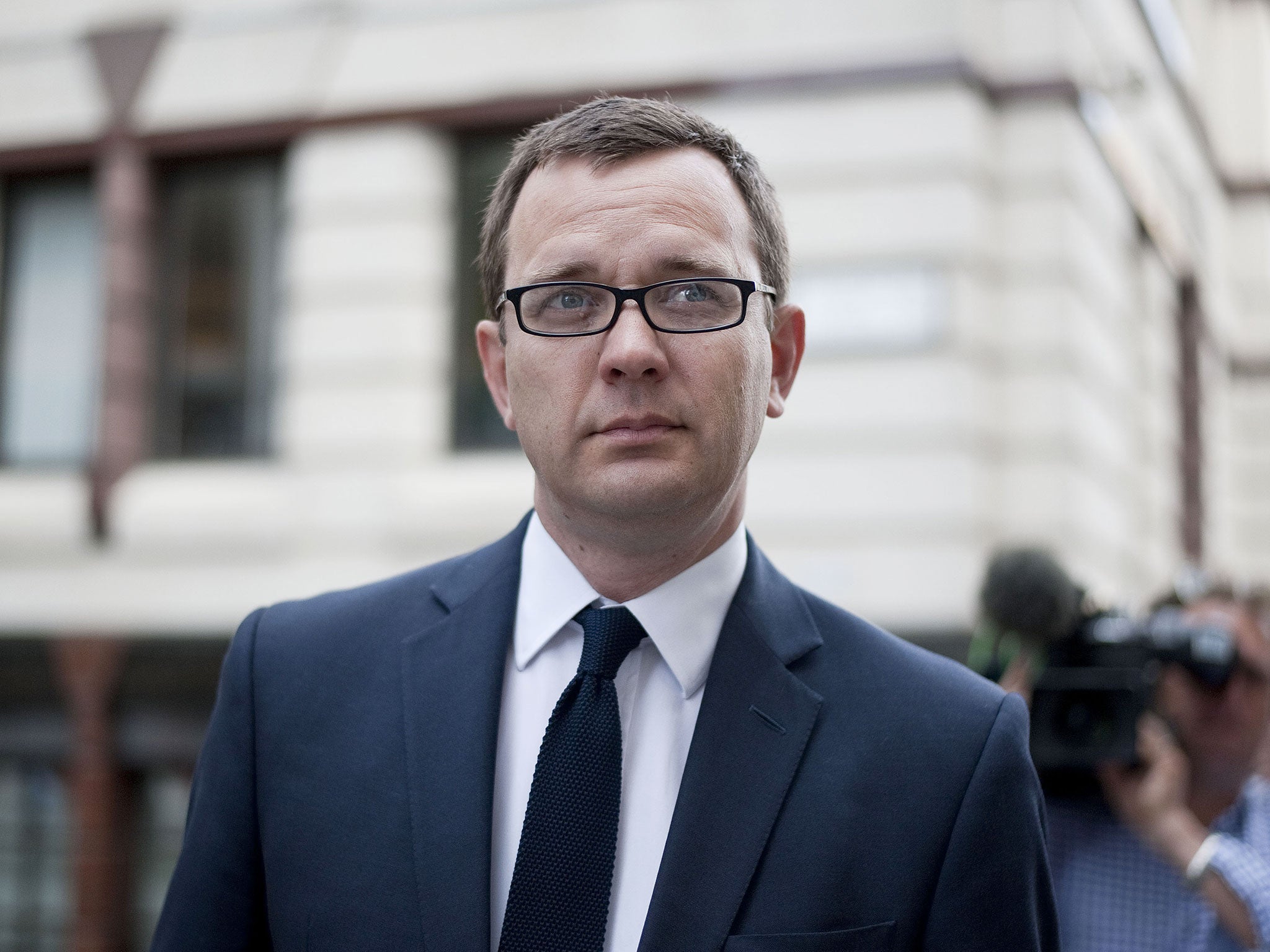Andy Coulson profile: The consummate tabloid hack who went too far
The News of the World man’s zeal for a story was his undoing


The image of Andy Coulson that the public got to know when he was director of communications No 10 was at odds with his reputation as a journalist.
What they saw was a discreet figure - dark, bespectacled, hovering in the background, occasionally murmuring something to the Prime Minister. He wanted to contrast himself with a predecessor who had enjoyed a similarly high profile: Labour’s Alastair Campbell. Whereas the latter could be outspoken and abrasive, and was a more intellectually confident character - - Coulson was more careful.
Unlike Campbell, who saw the job as one of destiny, Coulson never was that political. He only took up the post after quitting the News of the World. Press secretary to the Prime Minister would never have been his first choice of career.
Coulson – who has just been found guilty on a charge of conspiracy to intercept voicemails - was a consummate tabloid hack. He was personable, cheeky, irreverent, and keen to expose hypocrisy and wrongdoing wherever he found it. At the News of the World he was known for his aggression, for chasing a story, but also for being prepared to go the extra mile in order to lessen the risk – something that endeared him to his News International bosses. Ironically, it was that aspect of his personality that came out during the trial and told against him – using every means possible, including “do the phone” as he said, to verify a story.
Coulson, however, was definitely not “old Fleet Street”. He was too young for a start. He was born in 1968, but he also did not go in for the constant, after-work sessions in the pub and bellyaching about management – not least because his rise was so rapid that from the beginning that he was earmarked as future chieftain material.
Instead, he preferred the company of professional schmoozers and networkers, PRs and agents who could deliver him stars and gossip in equal measure. His was a world of tit-bits and favours – of putting stories in the paper in return for keeping others out, of holding back on one salacious tale for something else just as juicy.
His appetite for long hours was prodigious. When he was hired to join the Sun’s showbiz column, Bizarre, from the Basildon Evening Echo in 1988, his new boss Piers Morgan soon grew to appreciate his tenacity, for staying at the party longer than any other journalist, to not going home until he’d secured a hot item or two.
While his working life was one of rubbing shoulders with celebrities and attending the most spectacular bashes, Coulson made a point of never letting it go to his head. His wife and two young children in Dulwich were kept entirely separate.
This skill at compartmentalising was rare. So too was his gift for getting on with anyone – whether they were the Prime Minister or a seamy source. Partly that was the Essex in him – coming from the county that prides itself on not having airs and graces, that rewards enterprise.
His background was council house and comprehensive, not the mansion and Eton. He was typical of many of those who rose to the top under the meritocratic Rupert Murdoch – determinedly anti-Establishment, anti-Oxbridge, anti-public school, anti-silver spoon.
Even though he was from Essex he was essentially placeless, without ties or anything that would get in the way of producing the world’s biggest-selling Sunday newspaper. In this he was not dissimilar to Rebekah Brooks. She was from Cheshire but could have hailed from anywhere. Same as with Murdoch himself or any one of the earnest, white-shirted executives at the summit of his organisation.
The hacking scandal has taken a huge personal toll on Coulson. He lost his job, his house (he had to downsize). He’s rarely been seen out on the town, preferring to stay among close friends he can trust. Then, in the trial, details emerged of his long affair with Brooks. Today, with the guilty verdict, he is ruined.
He told friends that the fallout had cost him his forties. That was the analyst and pragmatist in him, suggesting he measured the likely impact and was hoping to rebuild his life in his fifties. That, though, may prove to be a forlorn desire.

Join our commenting forum
Join thought-provoking conversations, follow other Independent readers and see their replies